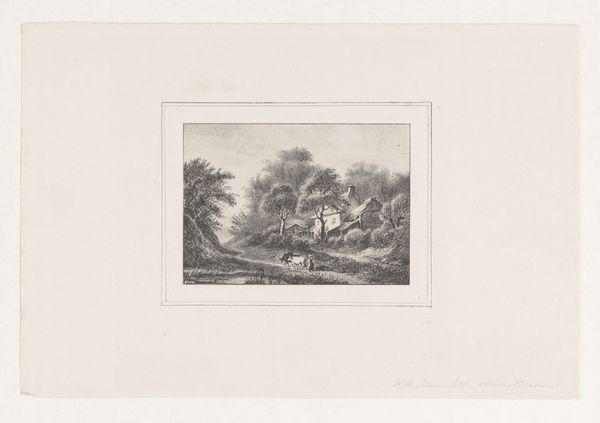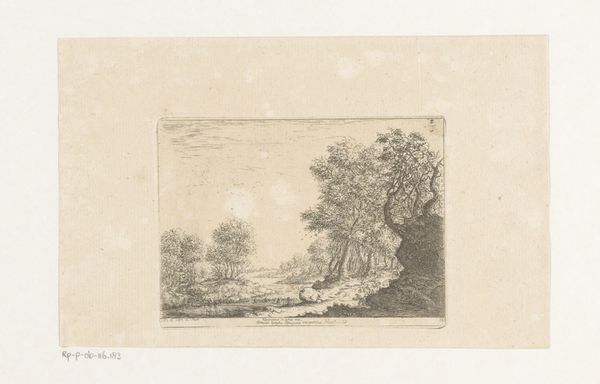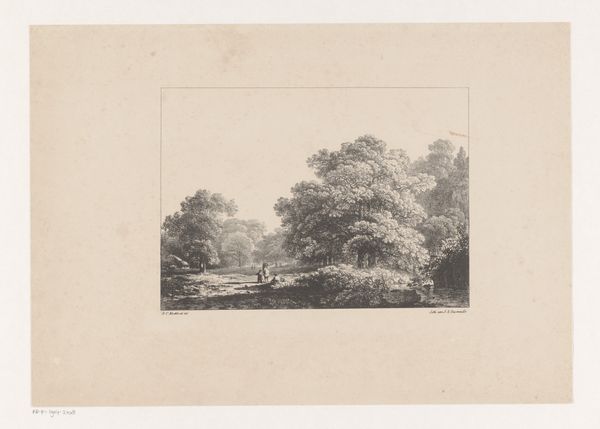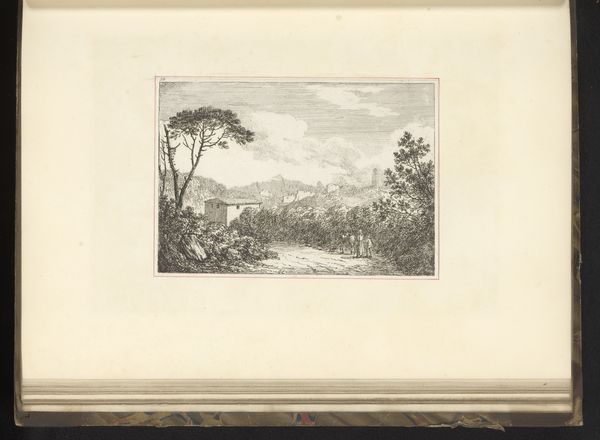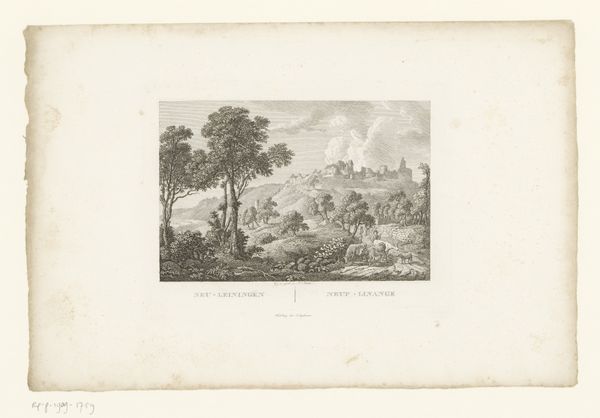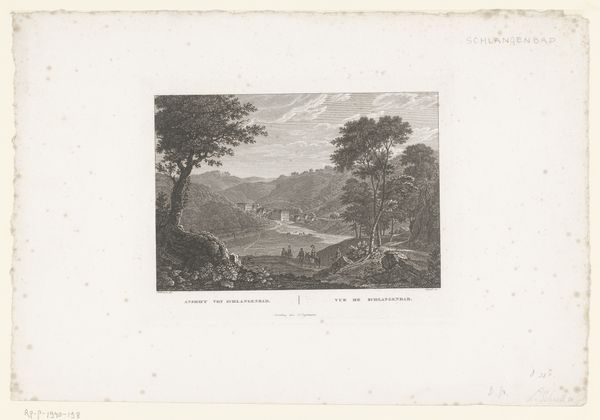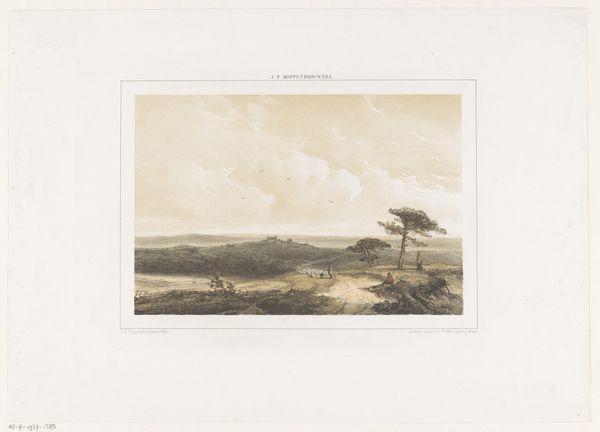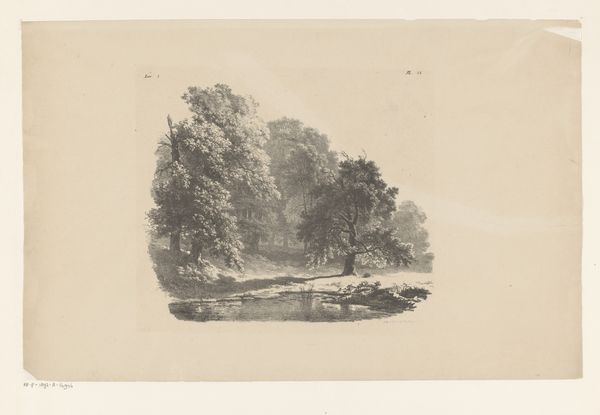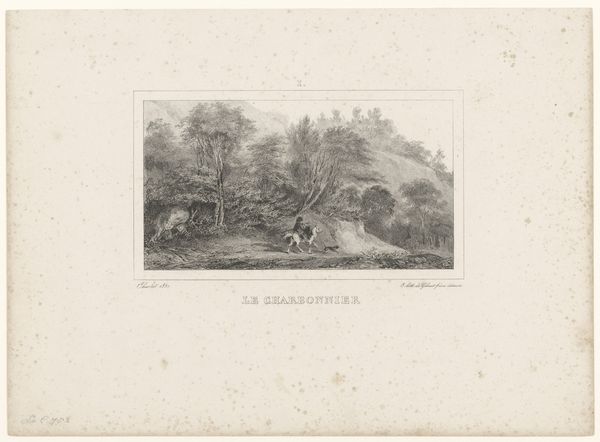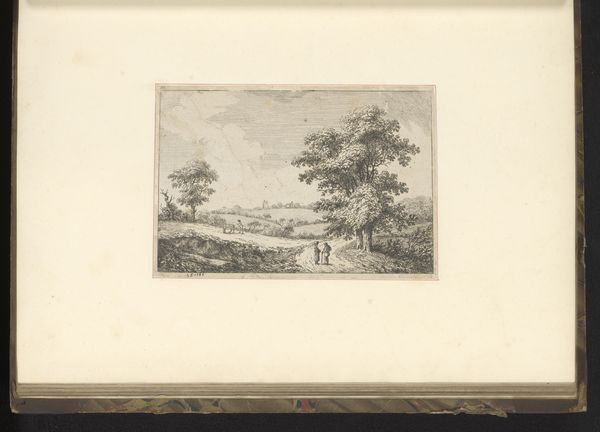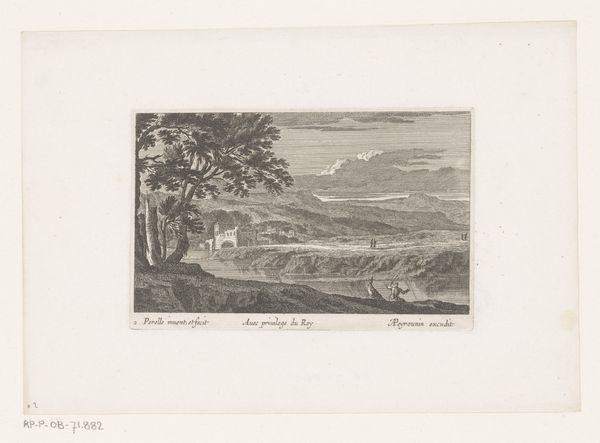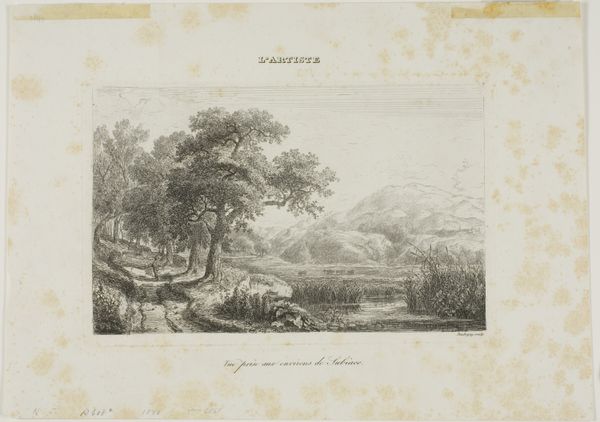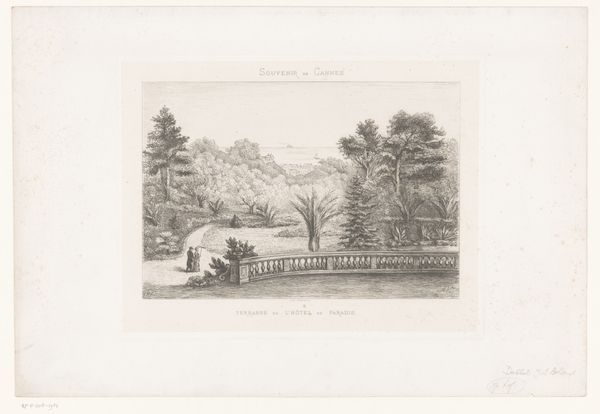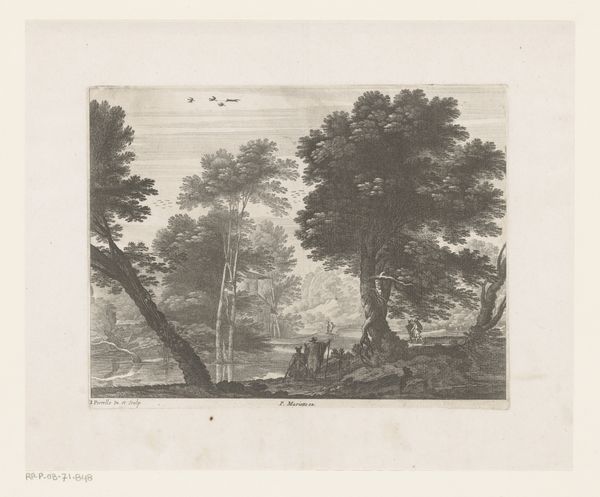
#
dutch-golden-age
# print
#
landscape
#
realism
Dimensions: height 347 mm, width 508 mm
Copyright: Rijks Museum: Open Domain
This is Willem Roelofs' "Landscape with Two Figures," a work on paper currently held at the Rijksmuseum. Here we see the archetypal symbols of the pastoral: figures, trees, and the implied promise of shelter, arranged in a scene that speaks to a deep-seated longing for harmony with nature. The trees, reaching towards the sky, echo the "arbor vitae," or tree of life, an ancient motif found in countless cultures from the Assyrians to the Mayans. This symbol transcends mere botany; it embodies growth, immortality, and the connection between the earthly and the divine. Even the simple act of depicting figures in nature carries a profound weight. Think of the classical "Arcadian" landscapes of Poussin or Lorrain, where idealized figures inhabit an unspoiled wilderness. This reflects a yearning for a lost Golden Age, a desire to return to a state of innocence and simplicity. The landscape evokes a powerful emotional response, tapping into our collective memory of nature as a source of solace and spiritual renewal. This is not merely a picture of a field but a symbol of humanity's enduring relationship with the natural world, a relationship marked by both reverence and longing.
Comments
No comments
Be the first to comment and join the conversation on the ultimate creative platform.
